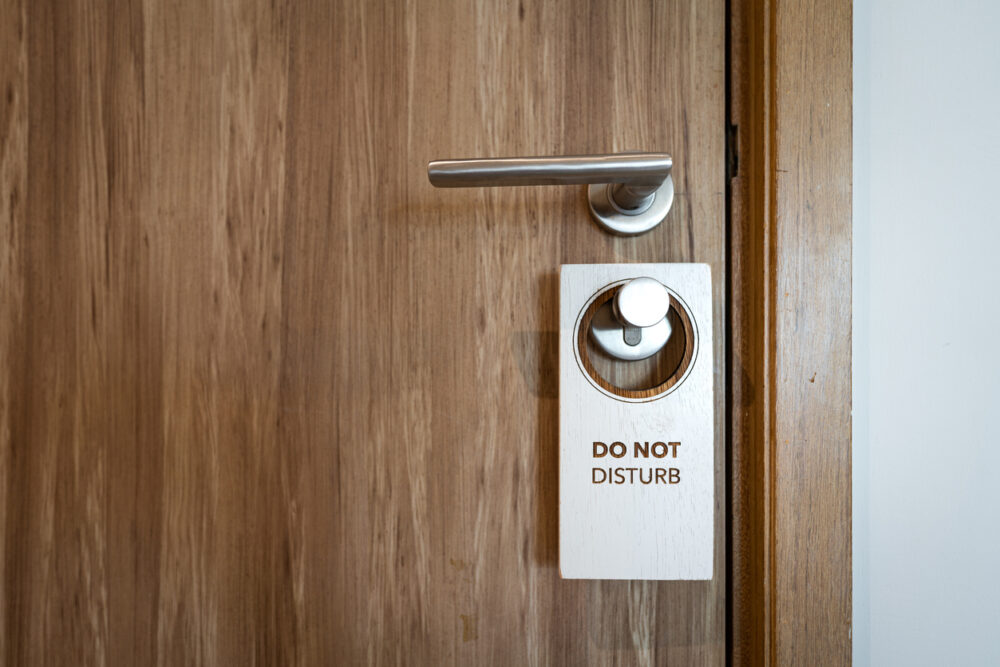Quiet thoughts can be the loudest form of resilience during chaotic workdays.

For introverts, work stress isn’t always about towering deadlines or angry emails—it’s the constant stimulation that wears them down. Back-to-back meetings, forced group lunches, open office chatter, and constant Slack pings create a sensory overload that chips away at their mental energy. It’s not about being antisocial; it’s about being overexposed. Even if they appear calm on the outside, their inner world might be desperately scanning for a moment of peace.
To survive the chaos, introverts often rely on private coping strategies that don’t involve venting or calling attention to themselves. Their lifeline is internal: quiet affirmations, rational self-talk, and short mental check-ins that pull them back from the edge. These aren’t elaborate rituals or self-help slogans—they’re quick, simple thoughts that serve as anchors in the storm. If you’re the type who needs solitude to reset but rarely gets it during a typical workday, these 11 internal reminders might sound very familiar. They’re not just comforting—they’re practical tools for holding it together without burning out in a world that often rewards noise over nuance.
1. “I just need to get through the next hour.”

This simple phrase is like a pressure release valve. It breaks the overwhelming into something manageable, according to the experts at Mind.org. Instead of stressing over the whole day, introverts will zero in on just the next task or meeting. It’s how they protect their energy and avoid feeling trapped in a spiral of everything-happening-at-once. Zooming in on one moment helps silence the rest of the mental clutter.
It’s also a subtle power move. It sets boundaries without saying a word. That short mental checkpoint tells the brain, “You don’t have to fix everything right now.” In high-pressure work environments, this internal mantra can stop anxiety in its tracks. Even just repeating it during a crowded elevator ride or right before walking into a brainstorming session can bring a surprising amount of clarity.
2. “Silence isn’t a weakness—it’s how I recharge.”

In loud office cultures, being quiet can be mistaken for being disengaged or aloof. Introverts know that’s far from the truth, as reported by Scott D Clary. Silence is their fuel. It’s how they organize their thoughts, process emotions, and gear up for their next contribution. They’re not trying to escape the team—they’re resetting so they can show up with something worth saying.
Reminding themselves of this helps them push back against pressure to perform constantly or to match the energy of louder colleagues. It reaffirms that being quiet isn’t something to apologize for. Instead of scrambling to speak just to fill a gap, they allow their silence to be intentional, thoughtful, and powerful. That internal respect builds outward confidence.
3. “I don’t need to answer right away.”

In fast-paced environments, introverts can feel cornered into giving immediate responses. But some of their best thinking happens after the meeting ends or the email cools off. This reminder gives them permission to pause, gather thoughts, and respond with clarity instead of impulse, as stated by the authors at Science Direct. It keeps them from getting swept into urgency that doesn’t serve the quality of their work.
More importantly, it’s a gentle boundary-setter. It allows space for decision-making without feeling rushed. It reminds them that they aren’t less competent for taking time—they’re often more thoughtful because of it. Holding back an answer doesn’t mean they’re stalling; it means they’re aiming for precision, and that’s a strength worth protecting.
4. “Breaks are productive too.”

Introverts often feel guilty taking time to themselves, especially if they’re surrounded by high-energy coworkers. But they deeply need that solitude to stay balanced and effective. Reminding themselves that a walk outside, five minutes of silence, or a quiet lunch alone is actually part of their productivity—not a break from it—is crucial.
This thought reframes rest as part of the workflow. Without it, they risk burnout or sudden emotional shutdowns that are harder to recover from. By honoring their own need for downtime, they give themselves the chance to show up as their full, focused selves when it really matters. It’s not laziness—it’s strategy.
5. “I’m not being rude—I’m protecting my energy.”

Declining a happy hour invite or opting out of team chatter doesn’t make an introvert unfriendly. It means they’re choosing their energy wisely. This internal reminder helps them let go of the pressure to people-please and overextend. It reminds them that self-preservation isn’t selfish—it’s a necessary form of self-respect.
By holding that line in their mind, they gain the courage to prioritize without guilt. It also keeps resentment at bay. When introverts do show up socially, it’s not out of obligation—it’s authentic. Protecting their bandwidth makes their presence more intentional, and that presence often feels more meaningful as a result.
6. “My best ideas come when I’m quiet.”

Meetings and brainstorming sessions can feel like battles of volume, but introverts know their strength isn’t in dominating a room—it’s in listening deeply, reflecting, and then offering something sharp and unique. This mental nudge gives them the confidence to stay grounded when others are rushing to be heard.
It reinforces the truth that processing is just as valuable as reacting. That great idea may come in the quiet car ride home or while staring out the window. Trusting that process takes pressure off in-the-moment performance and allows introverts to lean into their natural rhythm without self-doubt or comparison.
7. “They don’t need to know everything I’m thinking.”

There’s comfort in keeping some thoughts private. Introverts often have rich internal dialogues, but not all of it needs to be shared. This isn’t secrecy—it’s selectivity. It’s how they maintain emotional boundaries and avoid overexposing themselves in high-stress work environments.
This internal guardrail helps them stay rooted during tense moments, like when a manager pushes for more vulnerability or a colleague gets too personal. It reminds them they don’t owe constant access to their thoughts or feelings. Choosing when to speak is part of their self-control, and in many ways, it protects their peace.
8. “It’s okay to shut the door.”

If they’re lucky enough to have an office, or even a cubicle curtain or a “do not disturb” status, using it is not rude—it’s essential. This phrase gives them permission to draw a visible line between the chaos and their calm. It’s about reclaiming a space where they can refocus and breathe.
Even if that door is metaphorical—like pausing notifications or putting on noise-canceling headphones—it’s a powerful move. This small act of separation allows introverts to refill their tank and regain focus. It doesn’t mean they’re disengaging; it means they care about their quality of work and need a little room to protect it.
9. “I can skip small talk without guilt.”

Watercooler chatter and casual office banter can be draining for introverts, especially when it feels forced or repetitive. They often prefer deep conversations or meaningful interactions, not surface-level exchanges about the weather or weekend plans. This reminder affirms that their social preferences are valid and not something they need to fix.
By skipping small talk, they’re not being antisocial—they’re just choosing authenticity over obligation. This thought gives them freedom to engage on their own terms and protect their energy. And when they do engage, it usually feels more real, more thoughtful, and more enjoyable for everyone involved.
10. “I’ll respond better when I’ve had time to think.”

This internal message is more than a strategy—it’s a philosophy. Introverts value depth, and they know that quick responses often compromise that. When conversations require tough decisions or thoughtful insight, they function best with time and space to reflect.
This doesn’t mean they’re slow or indecisive—it means they’re deliberate. Holding onto this truth prevents them from falling into the trap of performative urgency. Instead of being reactive, they become reliable contributors whose words carry weight. It’s not about speed—it’s about impact.
11. “This will feel smaller tomorrow.”

During especially chaotic days, this is the phrase that helps introverts stay grounded. It offers perspective when anxiety swells and stress feels overwhelming. Time has a way of softening urgency, and knowing that can make today’s struggles feel less permanent.
This thought isn’t about denial—it’s about pacing. It creates emotional distance from panic and lets the brain breathe. Introverts often carry stress inward, and this reminder helps them release some of it without external drama. It’s a quiet kind of resilience, and it’s often what gets them through the toughest days.
